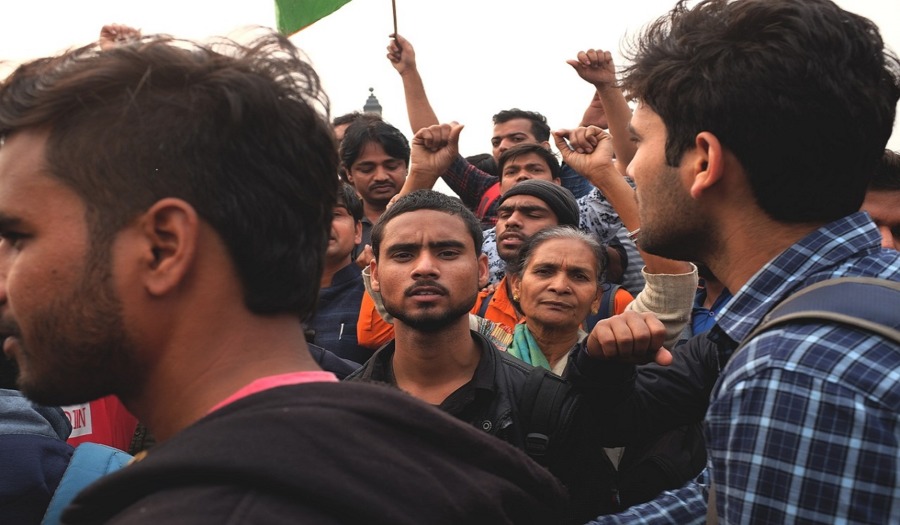Turmoil In Pakistan Consists In The Aftermath Of Former PMs Arrested
- Ingrid Jones
- Asia
- South Asia
- Trending
- May 11, 2023

The arrest of former Pakistani Prime Minister Imran Khan can be attributed to a corruption investigation that had purportedly been underway before his detainment. The Pakistani government took decisive action based on allegations surrounding Khan’s involvement in a bribery scandal. Specifically, it is claimed that Khan received land as a bribe during his tenure as prime minister. The investigation, spearheaded by the National Crime Agency, focused on property tycoon Malik Riaz Hussain and his alleged money laundering activities.
Central to the narrative is Khan’s third wife, Bushra Bibi, who has been implicated in the affair. It is alleged that she established the Al-Qadir Trust utilizing the land provided by Hussain. However, Khan vehemently denies these accusations, asserting that the land in question was, in fact, donated to a charitable cause. The gravity of these allegations and their potential implications for Khan’s reputation and political career cannot be underestimated, as corruption remains a deeply sensitive issue in the political landscape of Pakistan.
Former Pakistani Prime Minister Imran Khan’s apprehension has triggered a profound state of unrest and disorder within Pakistan, leading to a tumultuous period for the nation. The repercussions of Khan’s arrest resonated nationwide, sparking massive protests and plunging the region into chaos. Presently, Khan remains in custody subsequent to his recent appearance before the esteemed Islamabad High Court, which convened on Tuesday.
The arrest of former Pakistani Prime Minister Imran Khan can be attributed to a corruption investigation that had purportedly been underway before his detainment. The Pakistani government took decisive action based on allegations surrounding Khan’s involvement in a bribery scandal. Specifically, it is claimed that Khan received land as a bribe during his tenure as prime minister. The investigation, spearheaded by the National Crime Agency, focused on property tycoon Malik Riaz Hussain and his alleged money laundering activities.
Central to the narrative is Khan’s third wife, Bushra Bibi, who has been implicated in the affair. It is alleged that she established the Al-Qadir Trust utilizing the land provided by Hussain. However, Khan vehemently denies these accusations, asserting that the land in question was donated to a charitable cause. The gravity of these allegations and their potential implications for Khan’s reputation and political career cannot be underestimated, as corruption remains a deeply sensitive issue in the political landscape of Pakistan.
The aftermath of his detention witnessed an alarming surge in turmoil as his devoted supporters and fervent members of the Pakistan Tehreek-e-Insaf (PTI) party engaged in a series of shocking acts, vandalizing multiple army establishments and igniting the destructive flames that engulfed police vehicles.
The ramifications of Khan’s arrest reverberate far beyond the confines of his immediate confinement. Stability, a foundational pillar for any nation, now teeters precariously in Pakistan. The absence of a unifying figure such as the former prime minister creates a void that could potentially disrupt the delicate balance of power and governance. The fervour and dedication of Khan’s supporters in the face of adversity underscore their passionate loyalty toward their leader. However, the current predicament challenges the resolve of these ardent supporters as they grapple with the implications of their leader’s detainment.
The implications of this turn of events extend beyond mere political upheaval. Pakistan’s socio-economic landscape bears witness to the collateral damage inflicted by these recent events. The protests and ensuing chaos have destabilized public order, straining the already burdened infrastructure and impacting citizens’ daily lives. The once-promising prospects of progress and development are overshadowed by uncertainty and unrest.
Pakistan finds itself at a critical juncture within this complex tapestry of events. The nation must navigate the tempestuous waters of transition, seeking to restore stability and address the concerns of both Khan’s supporters and those who oppose him. The path forward demands a delicate balance that allows for a measured pursuit of justice while upholding the principles of democracy and preserving the rights of all citizens.
As the dust settles and the repercussions of Imran Khan’s arrest continue to unfold, the future trajectory of Pakistan hangs in the balance. The nation stands at a crossroads, where the choices made in the coming days and weeks will shape its destiny. The pursuit of stability and reconciliation becomes paramount, for only through a unified effort can Pakistan emerge from this turbulent chapter stronger and more resilient than before.








